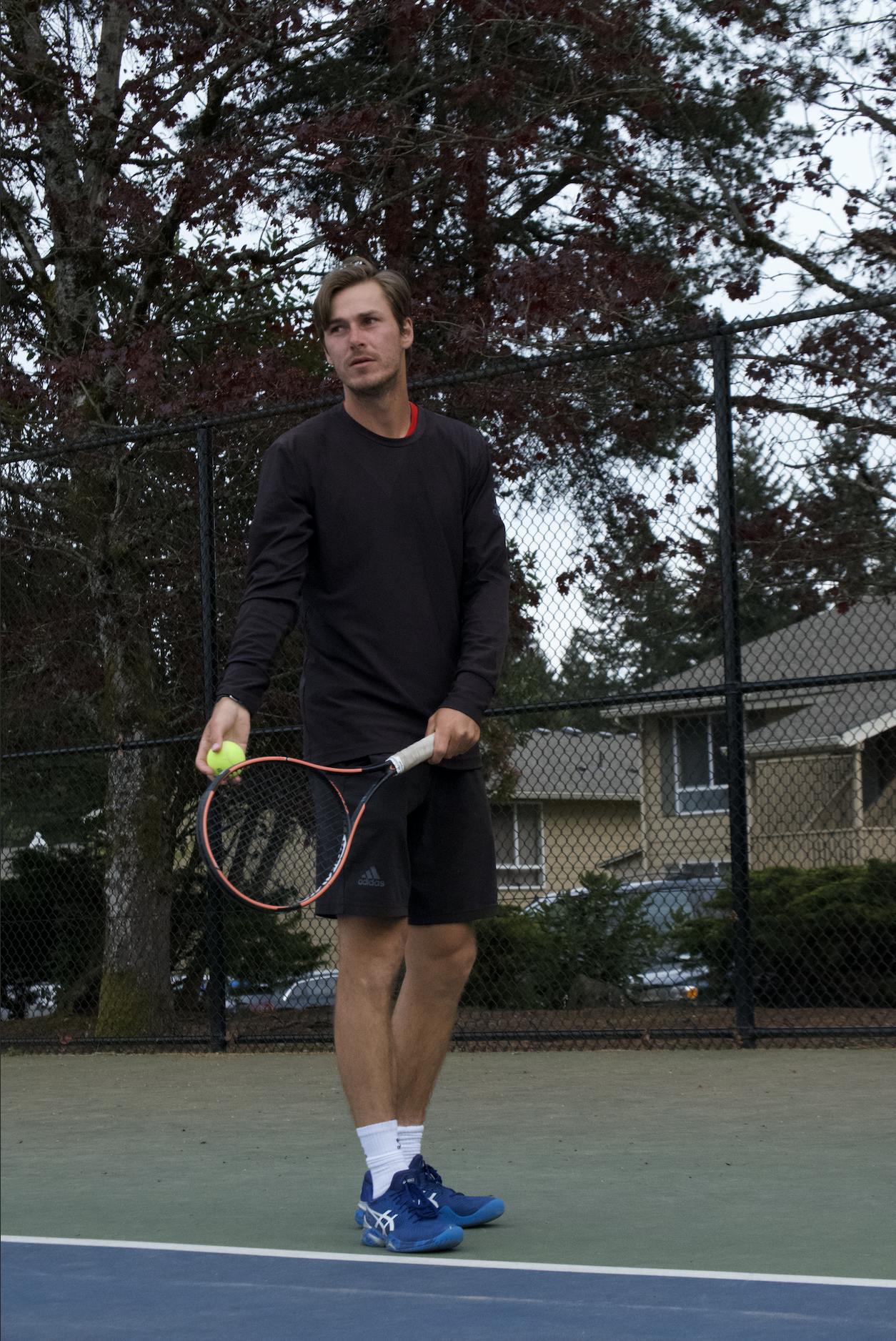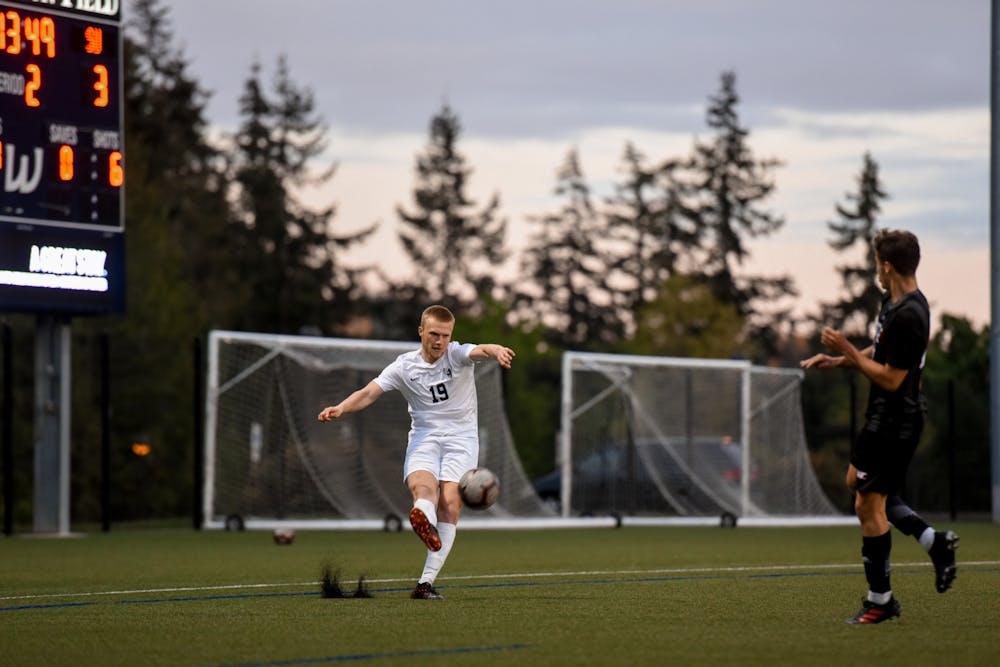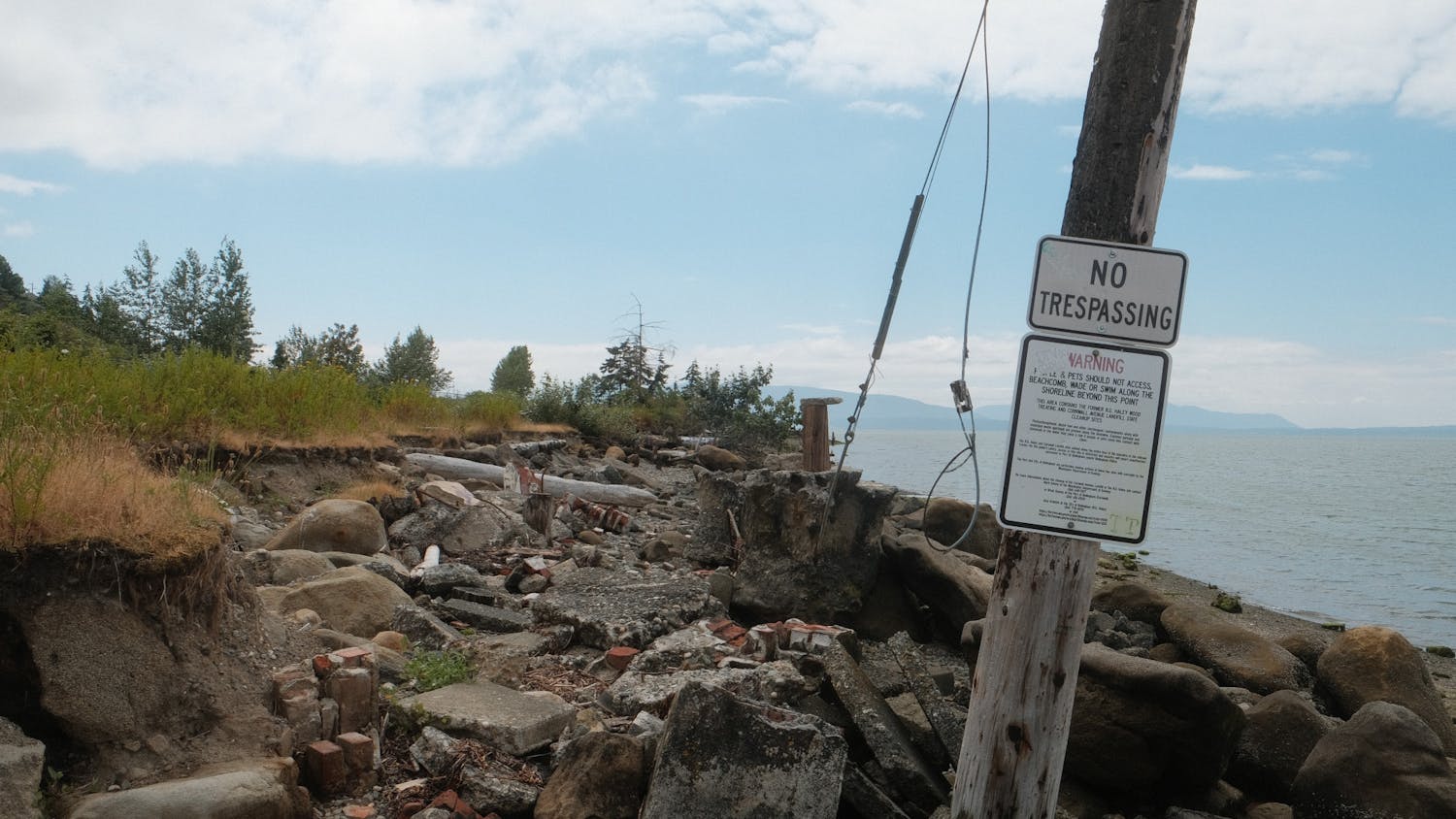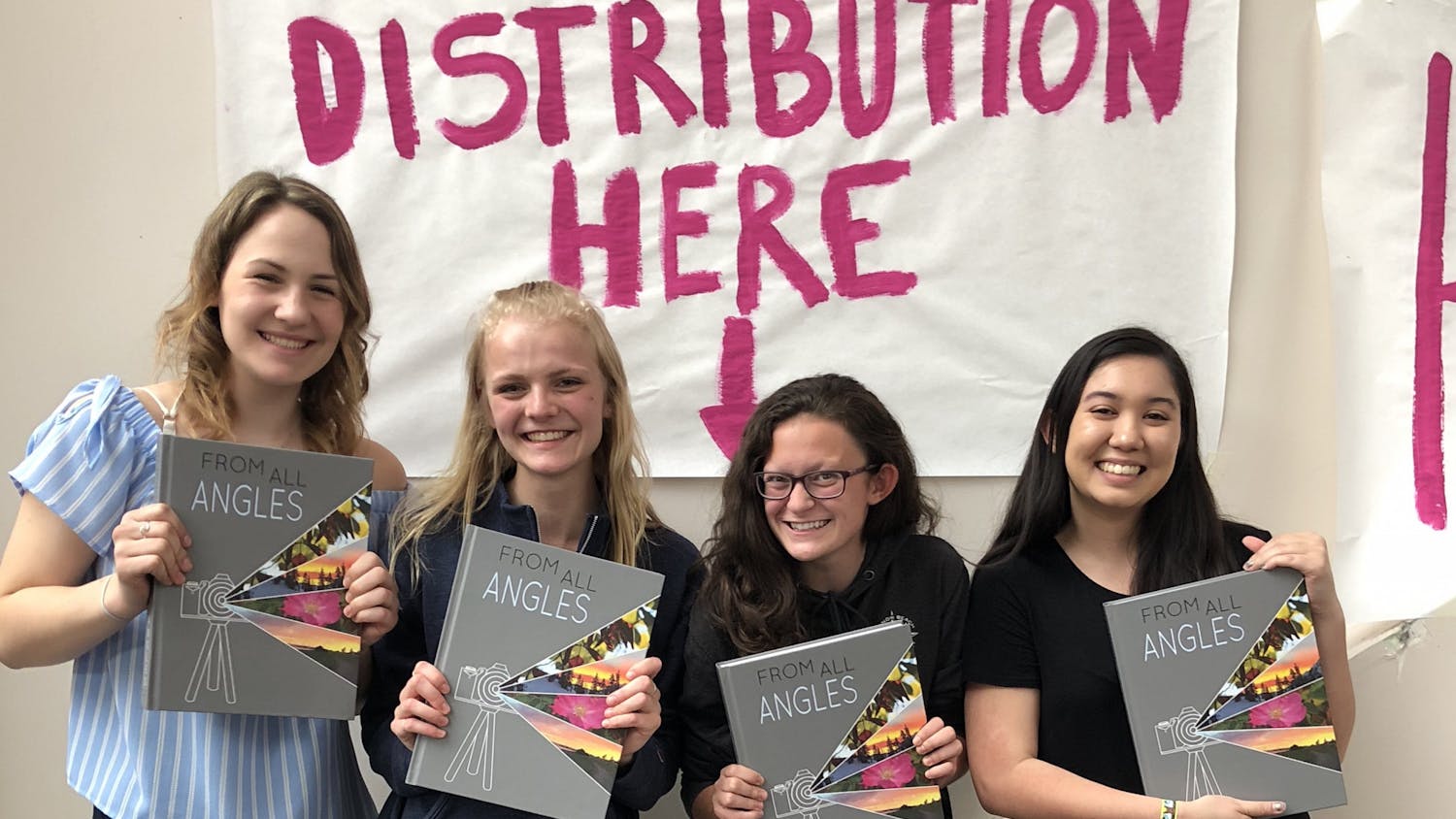As a Ukrainian-American who was born in Kyiv and came to the United States when I was 1 year old, I have felt helpless. These last few months, I’ve seen the country I was born in and still want to visit being demolished.
And there’s nothing I can do except write this article.
What’s the purpose of this war? Just because someone wants control of land that wasn’t theirs to begin with, innocent people have to be murdered?
Professional Ukrainian tennis players Oleksiy Arovin and Polina Chala, and former Viking and current professional Russian soccer player Iakov Shmelev, agreed the war has brought anger and sadness as well as unity among Ukrainians.
Here are three athletes’ perspectives on certain aspects of this ongoing war.
Protests: Are Russian citizens to blame?
Arovin, who lives in Seattle, said from the Russian people he’s been around, they don’t support the war. However, he said Russian propaganda states that everyone supports the war, and they are all in it together.
Chala, a friend of Arovin, said the world hasn’t heard the Russian peoples’ voices in terms of political change and because of that, Putin has been in control for many years. She said if the Russian people don’t support the war, they should have said something before.
Shmelev said he can’t support a government that has decided to start a war while the majority of its people continue to live in poverty.
“I think it's hard to blame average Russian people for this war as they live in a world of propaganda and strict laws that [prevent] them [from] protesting in any way,” he said. “If Russian public figures begin to speak out and voice their opinions against the war, it will help to show that not everyone supports this war.”

Ukrainian professional tennis player Oleksiy Arovin serves the ball at the Lakewood Men’s Open in Lakewood, Calif., in March. Arovin is from Donetsk, Ukraine, and has won a few tournaments locally at the Bellingham Training and Tennis Club during the summers and winters. // Photo courtesy of Oleksiy Arovin
The United States and NATO’s responsibilities
According to a report from the Tony Blair Institute for Global Change, Ukraine needs weaponry not just for the war happening now but for what’s to come in the following weeks. Ukrainian forces requested older, Slavic-type weaponry. But they also received newer weapons that required additional training.
Trying to figure out new weaponry is a problem when time is of the essence, and Ukrainians don’t know when the next missile will strike.
When Russia annexed Crimea in 2014, the world didn’t do enough to hold Russia accountable. As a result, Putin saw that if no one stood in his way when he took a part of Ukraine, no one would stand in his way now as he attempts to take over all of it. Russia has already taken over Belarus and is on the path to recreating the Soviet Union. If Putin takes over Ukraine, then Moldova, Finland, Sweden and many other countries not under NATO’s protection are his possible next targets.
“[The U.S. and NATO] are doing more right now [since] they are actually starting to do something that they were supposed to do at least a month ago,” Arovin said. “They were afraid to actually put some weapons into Ukraine because they were afraid that Putin would actually go for a nuclear attack or use an atomic tactical weapon. … In bringing NATO troops, it’s pretty sketchy. I don’t think it would be reasonable for them to basically start a third world war. You can not predict a dictator who is just going crazy.”
Chala said NATO’s position and involvement would cause World War III. But she is not in support of NATO’s decision to not intervene because she wants her country, family and hundreds of millions of other people to be safe. She understands that the United States and NATO are doing what they can, but she would like to see more corrective action before things continue to get worse.
Shmelev said it’s important to continue providing support to Ukraine without escalating the tensions that could lead to a bigger war.
“I think what the West is currently doing by providing all sorts of aid to Ukraine and placing harsh sanctions on Russia and its government officials is the right step,” he said. “However, Russia has leverage with its oil supply into Europe, and if there's a way to decrease the consumption of Russian oil, it must be done.”
Ukrainian athletes rising to the occasion
Several former and current Ukrainian athletes — boxers Vitali Klitschko, Wladimir Klitschko, Vasyl Lomachenko and Oleksandr Usyk and biathlete Dmytro Pidruchnyi to name a few — have decided to leave their families and jobs to join Ukraine’s forces.
Arovin said the athletes were not only patriots but were heroes for putting their life in danger for the sake of their country.
“[I am] extremely proud [of them] as an athlete,” Chala said. “I know how it is to perform under [the Ukrainian] flag. … People who have power, not in terms of force, [but] in terms of media [and] people watching them and trying to follow [them], if they follow the lead where they come and support the country that is in need, I honor that.”
Shmelev said he admired all Ukrainian athletes and how they were supporting their country even if it meant joining the front lines to take part in military actions.
Russian athletes using their platform to speak out
Russian athletes such as tennis players Daniil Medvedev and Andrey Rublev have spoken out against the war.
“For [Medvedev and Rublev], they are trying to play tennis [while] staying out of politics,” Arovin said. “But right now, you just can’t. … Politics actually rule our lives right now more than ever.”
Chala said it’s the Russian athletes’ responsibility to speak out against the war and bring it to their people’s attention.
“If [the Russian] population is not going to be awake, there is going to be less of my population left in this world, and I don’t want that,” she said.

Ukrainian professional tennis player Polina Chala hits the ball during her practice in Bethany, Okla., on Oct. 23, 2015. Chala is from Kharkiv, Ukraine, and came to the United States in 2014. // Photo courtesy of Polina Chala
Shmelev said there hasn’t been enough professional Russian athletes speaking out against the war because if they did, it could end their careers. However, he said if they united, it could have a bigger impact and be heard by many Russian citizens.
Banning of Russian and Belarusian athletes
Major sporting events such as Wimbledon and the Olympics have banned Russian and Belarusian athletes from competing. Is that fair since they have no control of their government’s political decisions?
“I would not support [the ban] because a tennis player is not a politician,” Arovin said. “But at the same time, that person who is a popular tennis player is not only responsible for their actions, they’re also responsible for their country as well. … And whatever Russian people or players say will actually affect the whole world. … So in this case, [the decision to ban athletes is] completely up to Wimbledon and the Tennis Federation.”
Chala said Russian athletes didn’t have input in their country’s decision to start the war. However, she said those athletes are well aware of which flag they are performing under, and they need to understand that if they choose to represent the Russian flag in their sport, then it means they are ready to face the consequences as well.
Shmelev said when innocent people are dying and everything they've worked for destroyed, all possible actions must be done in a timely manner to stop the war.
“It's unfortunate that some athletes won't be able to compete in their sport even though they might not even support this war,” he said. “Hopefully, it will make them not be silent and speak up against the war.”
Where does the world go from here?
I believe to defeat Goliath, it takes a group of Davids.
I understand families fleeing the country with their loved ones. But, I am also very proud of every Ukrainian who has stayed back and is willing to fight this unprovoked war with Russia.
“When [President Zelensky] said, ‘I don’t need a taxi, I need weapons,’ I was never proud of being Ukrainian as much as at that moment when our president stood up for the country,” Chala said.
Regardless of what Putin and the Russian government do moving forward, they will never be able to defeat the spirit of Zelensky or any Ukrainian on the face of this Earth.
For ways to continue supporting the Ukrainian people, visit this website.

Taras McCurdie (he/him) is the sports editor for The Front this quarter. He is an aspiring sports journalist entering his final quarter at Western Washington University (WWU). Outside of school, you can find him freelancing for the Lynden Tribune, playing on the WWU club tennis team or running on the treadmill at the Rec Center. When chilling at night, he listens to throwback slow jams and ’90s hip-hop. You can reach him at tarasmccurdie.thefront@gmail.com.






